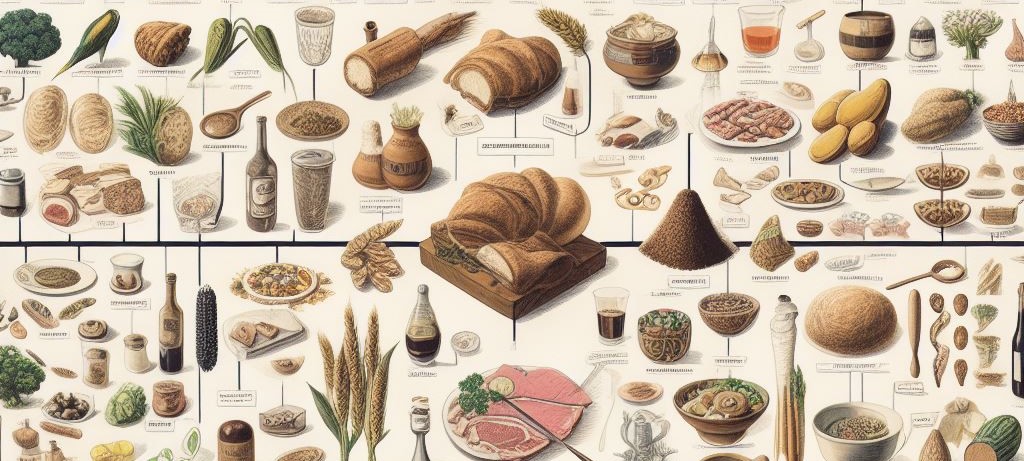 |
START |
TOPICS |
RECIPES |
HISTORY |
ESPAÑOL |
The history of food and nutrition |
 |
The history of food is a field of study that spans thousands of years and is closely related to the evolution of humanity and societies over time. Here is a summary of the key milestones in the history of food: |
|
Prehistoric Diet: In the early days of humanity, the first humans were hunter-gatherers. They relied on hunting animals and gathering fruits, roots, and plants for sustenance. The diet was primarily carnivorous and vegetarian, depending on the availability of food in the region where they lived. |
|
 |
 |
|
|
Invention of Cooking: With agriculture, communities began to develop culinary techniques for food preparation. Cooking methods such as open-fire cooking, clay ovens, and cooking pots were invented. |
|
 |
 |
|
|
The Middle Ages: During this period, the diet was heavily influenced by religion. Days of fasting and abstinence were common, leading to the creation of specific dishes, such as eating fish on Fridays. Food was also a marker of social status, with the nobility enjoying luxurious and exquisite dishes, while the general population had a simpler diet based on grains and vegetables. |
|
 |
 |
|
|
Industrial Revolutions and Modern Food: The Industrial Revolution brought increased urbanization and the emergence of the food industry. Food processing techniques like canning and refrigeration were developed. Restaurant chains and supermarkets emerged, changing the way people shopped for and consumed food. |
|
 |
 |
|
|
Contemporary Issues: Large-scale food production, industrialization, and globalization have posed challenges in terms of food security, sustainability, and health. There has been an increase in obesity and diet-related diseases, leading to greater interest in healthy and sustainable eating. |
|
 |
|